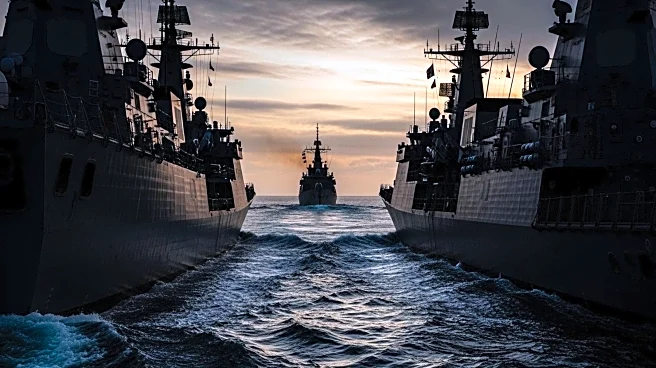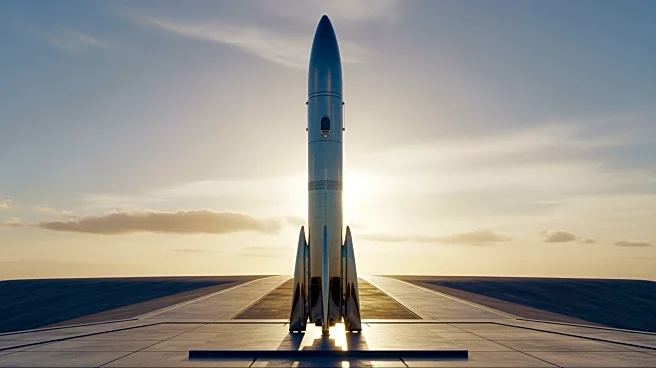What is the story about?
What's Happening?
Recent satellite imagery has confirmed the presence of Chinese aircraft carriers at a naval base in the South China Sea, following maneuvers in the Taiwan Strait. The Fujian, China's largest and most advanced aircraft carrier, has been undergoing testing and training since mid-September. This development is part of China's broader strategy to assert its claims over Taiwan and project military power in the region. The Fujian features an electromagnetic catapult system, marking a significant advancement over previous carriers. China is also constructing a fourth aircraft carrier, the Type 004, expected to rival U.S. supercarriers in size and capabilities.
Why It's Important?
China's military activities in the Taiwan Strait and South China Sea are significant as they challenge U.S. naval supremacy in the Pacific. The region is a critical conduit for global maritime trade, and China's claims over it have been dismissed by international courts. The presence of advanced Chinese carriers enhances China's ability to project power and influence regional security dynamics. This poses strategic challenges for the U.S. and its allies, who rely on freedom of navigation in these waters. The developments could lead to increased military tensions and necessitate strategic adjustments by the U.S. and its allies.
What's Next?
It remains uncertain whether the Fujian will be officially commissioned by the end of the year. The construction of the Type 004 carrier continues, with expectations of it being nuclear-powered and comparable to U.S. supercarriers. These advancements may prompt the U.S. and its allies to bolster their military presence and capabilities in the region to counterbalance China's growing naval power.
Beyond the Headlines
China's military advancements reflect its long-term strategic goals of regional dominance and influence. The development of advanced carriers and military infrastructure in the South China Sea could lead to shifts in regional alliances and security policies. The situation underscores the importance of diplomatic engagement and conflict prevention measures to maintain stability in the Indo-Pacific.














